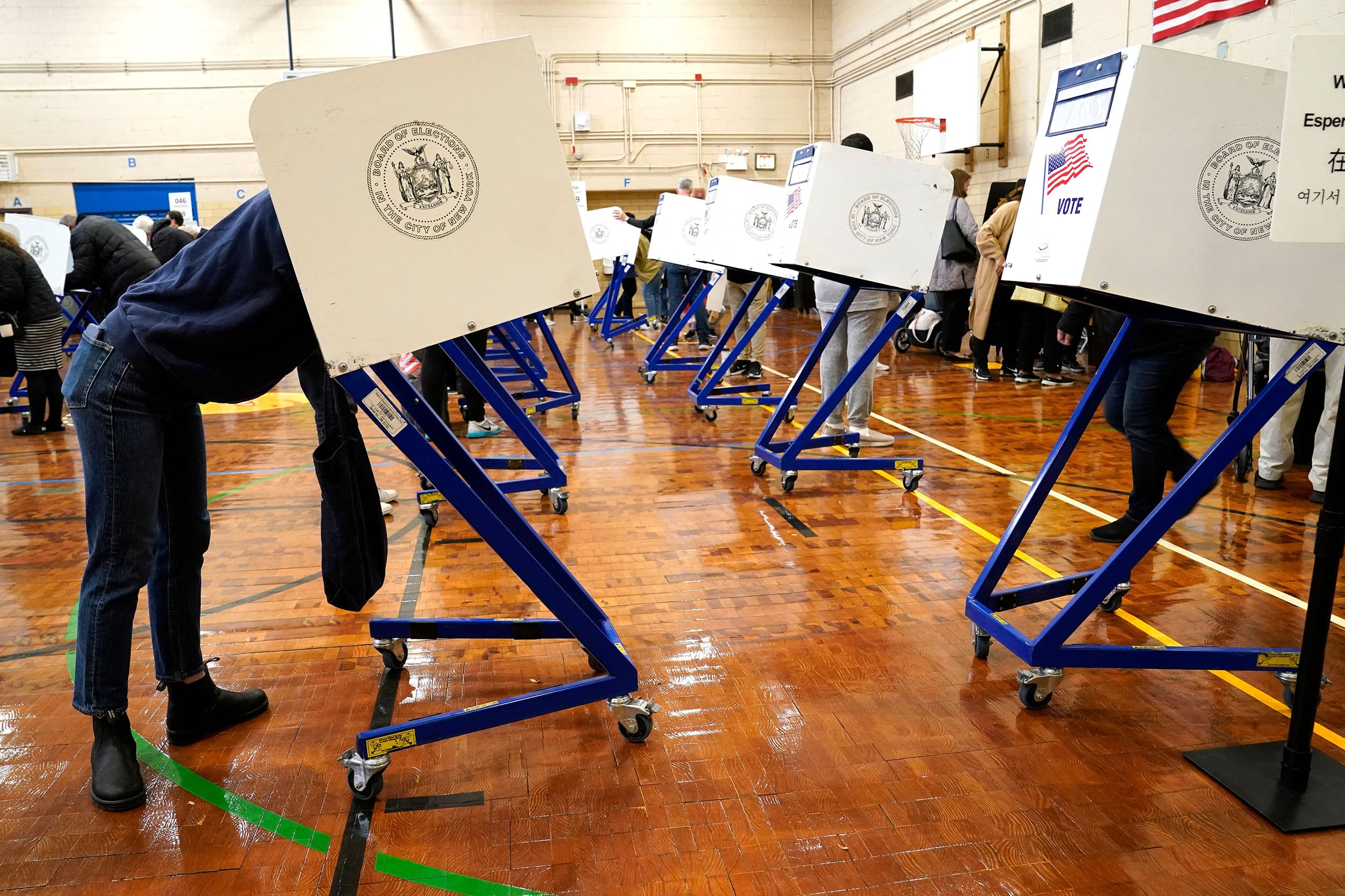Sign up for Chalkbeat New York’s free daily newsletter to keep up with NYC’s public schools.
As the end of the legislative session draws near, some New York parents and lawmakers are pushing to eliminate public schools as an option for early voting sites.
It’s an issue that has prompted concerns among some parents and educators — with schools that are used as polling sites losing access to school facilities for notable portions of the year. And as the city’s public schools have moved to adopt more stringent security measures over the past year, the continued use of school buildings for elections has left some confused.
“With all of the security measures that are in place, why would you then open the backdoor and let anyone walk in?” said Kindra Hall, a Manhattan mom. “It doesn’t make any sense.”
In Albany, the bill has stalled in the Assembly, with just two days left until the session ends. Sen. Liz Krueger, a sponsor of the bill, noted that early voting has improved voting access for New Yorkers, but added that schools should not be used as poll sites.
“Unfortunately we have seen considerable disruption caused when public schools are used as early voting sites, which is a particular problem in New York City,” she said in a statement. “I’ve heard from many of my constituents and school leaders, for several years now, about students losing access to critical facilities in their schools, such as the cafeteria or the gym, for weeks at a time. There are other options available, and this bill requires certain publicly-supported institutions to make themselves available if needed.”
Currently, four of the five boroughs use schools as early voting sites, with Queens as the exception. In January, the city’s teachers union passed a resolution calling for an end to the practice, noting 33 out of 140 early voting sites were located in public schools in 2023.
City officials said police officers are stationed at every polling site, including at schools. Jenna Lyle, a spokesperson for the city’s Education Department, said the department will continue to prioritize the safety of school communities.
“We work closely with leadership at schools hosting early voting to address any concerns, minimize disruptions, and ensure schools are able to effectively perform their primary function of educating students,” she said in a statement. “We are required by state law to comply with decisions made by the Board of Elections regarding polling sites, and we appreciate each school’s flexibility making early voting successful.”
Hall said her two kids at Wagner Middle School on the Upper East Side missed out on more than 30 days of gym access to accommodate early voting this year. During New York’s presidential primary in March, her daughter attended gym class in the school’s auditorium, where she sat and “did nothing,” Hall said.
Meanwhile, after-school sports that relied on the gym, like basketball, volleyball, and others, were disrupted.
Assembly member Alex Bores, a sponsor of the bill, said despite widespread support, passing the legislation before the end of the session on Thursday will be “an uphill climb.”
“We want to make sure that we do this right, not just for this election, but for the future as well,” he said. “So I’m hoping it gets done in the next few days, but I want to make sure that we get it right regardless.”
For Hall, though, the urgency feels more immediate. While recent elections have seen relatively low turnout, she remembers voting at Wagner in the 2020 presidential election and waiting for hours as the line wrapped around the block. She worries about thousands of voters entering her kids’ school as they cast their ballots for president in the fall.
“I have my eye on November,” she said. “If we don’t get it signed, if it’s not all the way through by Thursday, then that process starts all over again in January, which is too late.”
Julian Shen-Berro is a reporter covering New York City. Contact him at jshen-berro@chalkbeat.org.






